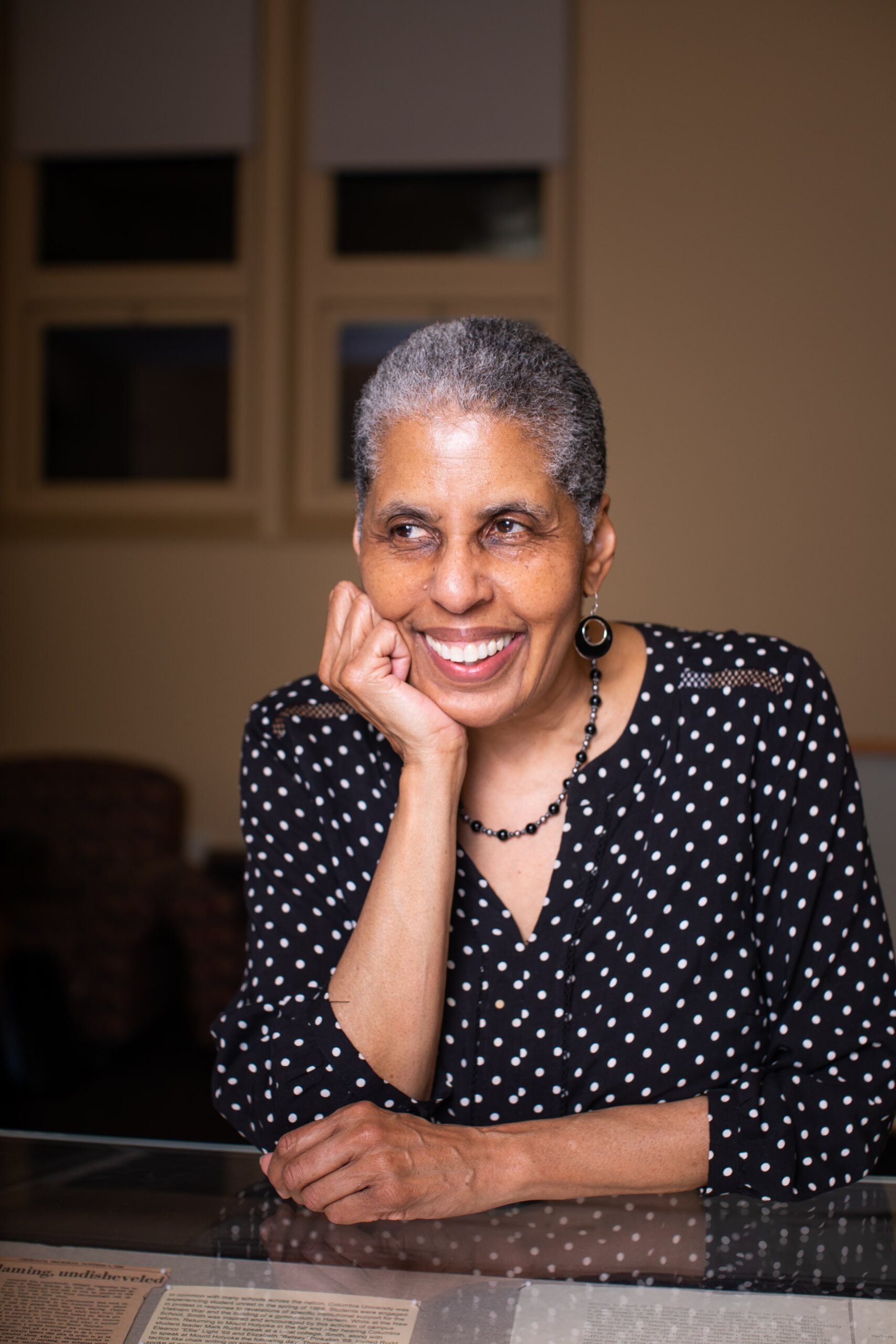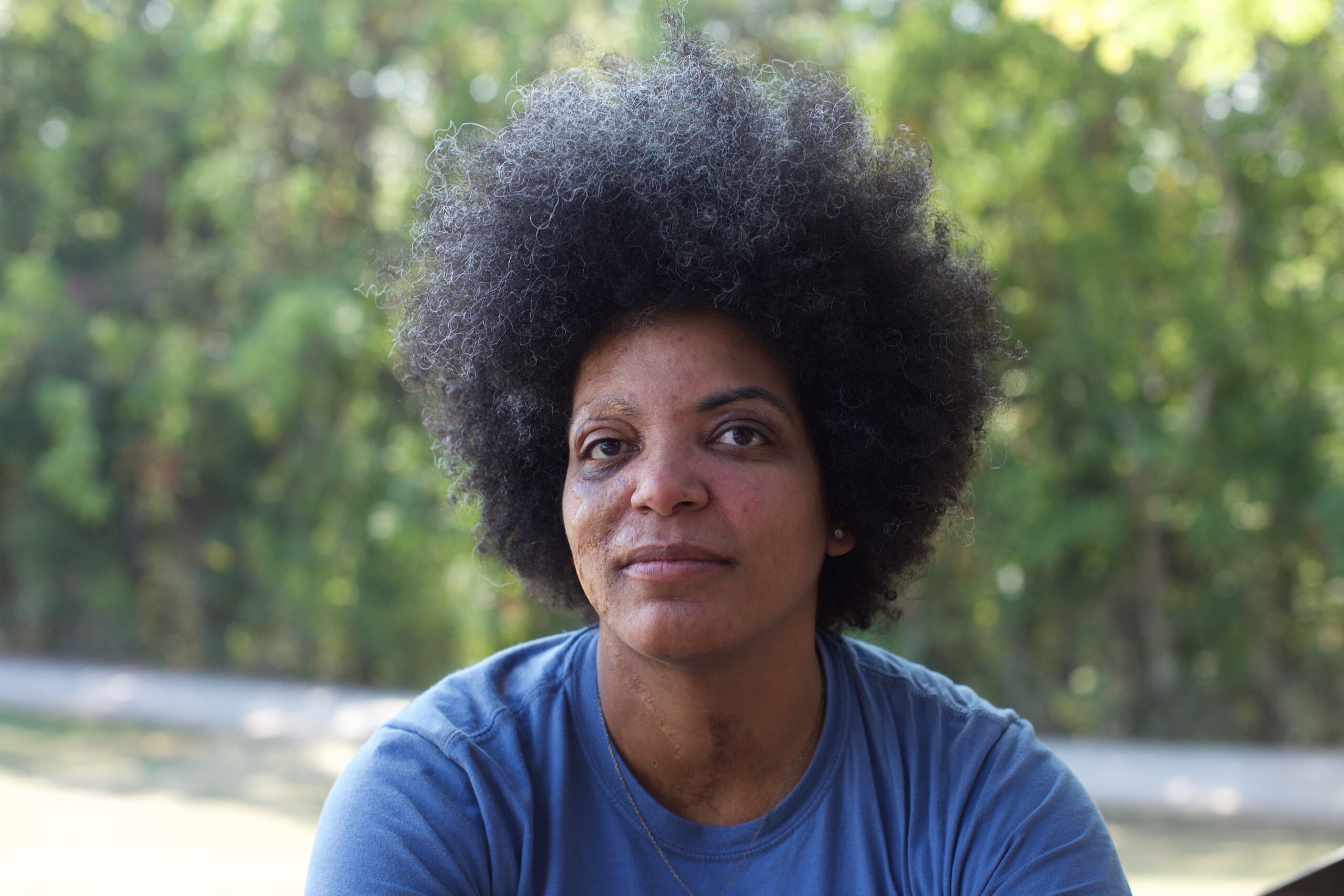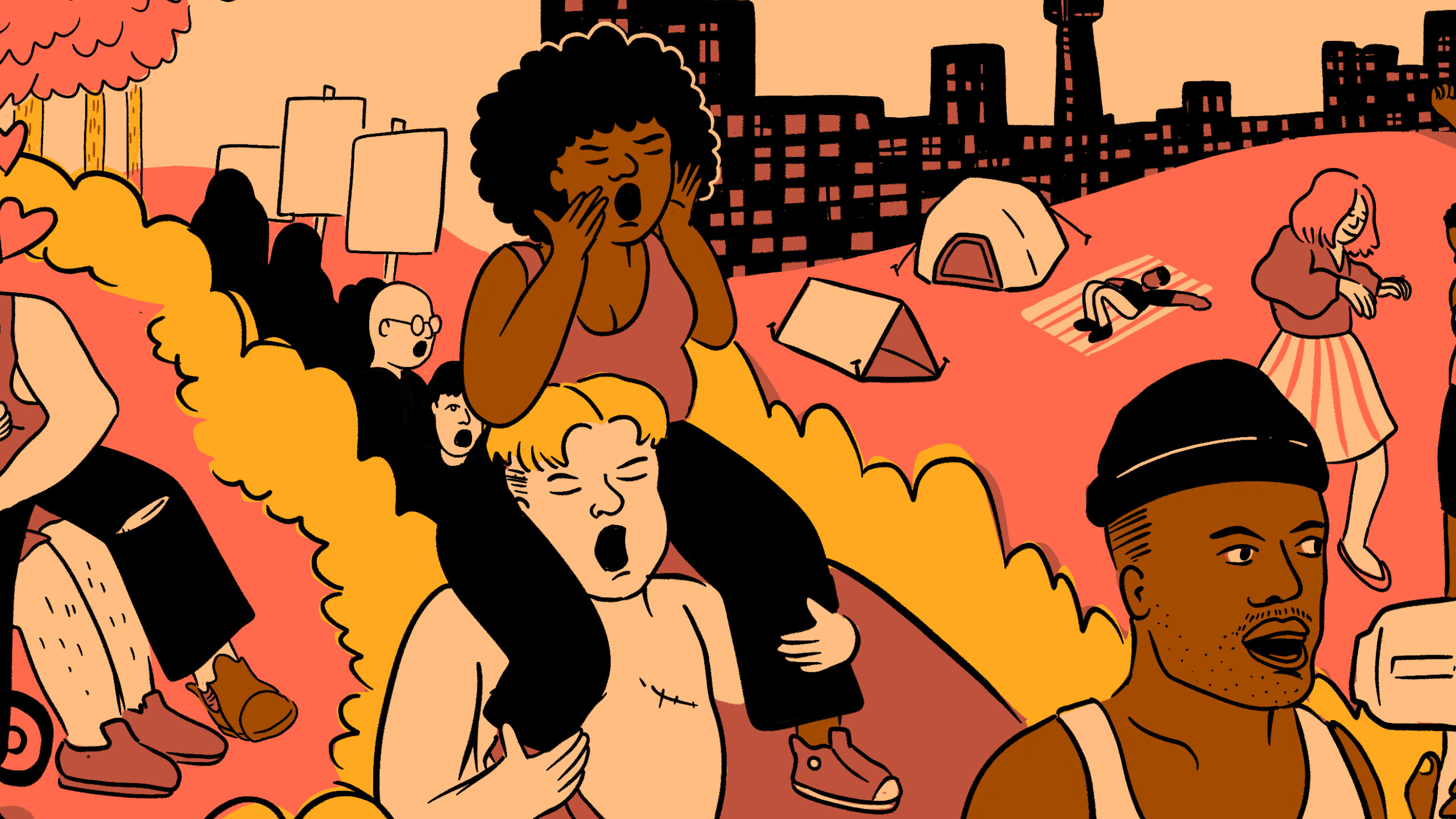This year marks the 50th anniversary of Xtra’s publisher, Pink Triangle Press, which was established in 1971 in Toronto, Canada. The aim of the press’ founding collective was to give a voice to the political and social concerns of gay men and lesbians and to advance the cause of sexual liberation. In November 1971, they launched the influential (and occasionally infamous) gay liberation newspaper, The Body Politic. Fifty years later, Xtra is exploring what sexual liberation means in the 21st century through the six-part series Protest and Pleasure by activist and writer Chanelle Gallant.
According to many LGBTQ2S+ organizations, winning the right to a regular-ass, normative marriage has been one of the crowning achievements of the gay rights movement—which is kind of funny, considering that marriage doesn’t seem to make straight people all that happy (just check out the spiking divorce rates during the pandemic). But, okay, sure, queer marriage can be cute. I should know—as I was writing this, I celebrated my 11th wedding anniversary.
Like a lot of queers, I married for traditional reasons: I needed access to rights that were inaccessible to me unless I was in a relationship sanctioned by a racist and homophobic state. So romantic! My partner is from Australia, and to be together in Canada, we needed to marry to qualify for the family reunification program. I think my partner is the best thing since sunshine so I was happy to put a ring on it. But when we got married—one week after an immigration lawyer recommended it—we were required to swear that our partnership was “to the exclusion of all others.” We smiled knowingly at each other and said, “I do.”
Sweet, right? But why did the government withhold our right to be together until we married on their terms? Why couldn’t we not marry and still get our needs met?
This series is about the structural roots of sexual injustice and the social, racial and economic justice movements that are working to free our lives—as well as our sexualities and gender identities—from stigma, violence, criminalization and oppression. I’ve already looked at some of the ways that racism and colonization have criminalized and banned queer and other non-normative forms of sexual and romantic relationships. In this installment, I wanted to look at how capitalism coerces us into them.
I reached out to two Black socialist activists and thinkers whose analysis, vision and strategy have heavily inspired intersectional movements against capitalism. Barbara Smith is “one of the OG lesbian activists,” a Black feminist author and activist who helped to build Black feminism in the U.S. In the 1970s, Smith co-founded the Combahee River Collective, whose influential statement on Black feminism and identity politics continues to guide movements today. I also spoke with Ash-Lee Henderson, a powerhouse queer leader in the Movement for Black Lives and the first Black woman to serve as co-director of the Tennessee-based Highlander Center, the foremost radical organizing institute in the U.S.
When I asked each of them how capitalism shapes LGBTQ2S+ sexuality, both immediately pointed to capitalism’s love affair with the nuclear family, identifying it as a way that the ruling class concentrates its wealth and power. We may feel that these intimate relationships are personal and private, but laws and policies have shaped the form our partnerships and families take to meet specific ends.
As Smith describes it, “capitalism has a real tendency, to put it mildly, to marginalize those who don’t fit within certain social and ideological agendas that shore it up. Capitalism needs to control everything that happens under it. That means controlling women and reproduction and nuclear families, which are the engines of capitalist agendas.”
It might sound odd to hear that our families could have anything to do with capitalism. But as we’ve seen in previous installments of this series, our societies distribute resources, like land, property, wealth and political power, based on sexuality, gender and family status all the time. Does anything change when you swap out the wedding cake toppers with two grooms or two brides? Could our cute lil gay marriages also be “engines of capitalist agendas”?
One of the most beautiful things about LGBTQ2S+ communities is the many forms of love, commitment and family that we create, often doing so after having been rejected by our families of origin. The extended kinship network, street families, ball house families, no-moms families, all-moms families, prison families, foster families, polyamourous relationships, friends-as-family, loving networks of exes, communal households—there are so many possibilities. It’s therefore remarkable that regular old two-partner marriage is considered our greatest political victory.
The narratives about winning the fight for gay marriage are very romantic. I got a little mushy watching this charming video dedicated to Jim Egan and Jack Nesbit’s fight for marriage equality in Canada and their half-century long partnership. But when you scratch the surface, you find a more mundane story about economic rights. Egan had retired and was eligible for a social security pension, but his partner Jack could not get his fair share of the pension because that privilege was (and still is) reserved for legally recognized spouses. Together, they launched a case that eventually paved the way for gay marriage to become federally recognized in Canada in 2005.
“Why should anyone—queer or straight—have to enter a state-sanctioned marriage in order to survive capitalism?”
The U.S. campaign for gay marriage grew out of similar claims to economic rights and spousal protections. The Defence of Marriage Act was struck down by the Supreme Court in 2013, with a case brought forward by Edie Windsor who, after her partner Thea Spyer died, was asked to pay $363,000 in federal estate taxes since the pair were not legally married. Two years later, Jim Obergefell won full marriage equality after his partner John Arthur died, and Obergefell was not recognized as his legal beneficiary. He and other couples fought until gay marriage became federally recognized across the U.S. in 2015.
What this tells us is that LGBTQ2S+ people have sought legal marriage for some of the same pragmatic, economic reasons that straight people do. This matters because, in spite of the “myth of gay affluence,” we are not a rich community. Most LGBTQ2S+ people are poor or working class. About a third of LGBTQ2S+ people in the U.S. live in the South, the poorest region in the country. Two-Spirit and trans folks (especially trans women and trans folks of colour) face disproportionately high rates of poverty, unemployment and homelessness. Our elders—including Barbara Smith—have to crowdfund their retirement. (Even if you don’t know it, Black feminism has saved your life so go drop some cash into it!)
We all know what helps people to thrive economically: A living wage! Unions! Universal services! But failing that, there’s marriage. We could have a good social safety net that leaves no one behind—or we can cope with the problem privately, by pooling our income with a spouse to cover the rent, groceries, childcare and other bills, and to hopefully get access to their health care plan, tax breaks, immigration status and all the other benefits, obligations and rights that come with marriage. But why should anyone—queer or straight—have to enter a state-sanctioned marriage in order to survive capitalism?
Pursuing marriage for these benefits is a way of privatizing the solutions to the social problem of an economy that puts profit over people and fails to meet human needs. When families must become the safety net for an unjust system, the costs of sustaining human life are downloaded onto individuals, not shared equally by society. It is women, Smith says, who “reproduce the work force and make capitalism possible by doing unpaid labour that makes society run.” And it is working-class women of colour who do the majority of underpaid care labour in the private sector.
Relying on marriage and women’s cheap or free care labour means that corporations don’t have to pay their fair share in taxes to adequately fund public supports like affordable housing, expanded health care, universal daycare, green infrastructure and accessible transit. Nor are corporations readily compelled to provide their employees with a living wage; they can just go on exploiting labour and land, knowing that families/women will pick up the pieces and help each other survive the system—unless they can’t. Relying on marriage really doesn’t work for a lot of poor people or disabled people who can’t just marry their way out of the problem. In fact, many disabled people in the U.S. and Canada still lose their rights to government support if they marry.
And if capitalism is bad for marriage, it isn’t great for our sex lives, either. Smith notes that economic anxieties can have a dampening effect on our desire. “How sexually free and open do you feel if the wolf is always at the door?” she asks. “A repressive and exploitative economic structure has an impact on people’s inner lives and one’s sexuality. That kind of society has a negative effect on how people can express themselves, have joy and pleasure.”

Credit: Joanna Chattman
Capitalism doesn’t just economically marginalize LGBTQ2S+ people. It relies on, and creates, intense social division and inequality, including homophobia and transphobia. “The lives of LGBTQ+ people are embattled and endangered under the system that also deploys white supremacy, heteronormativity and homophobia,” Smith says, adding that they are all part of communities that “capitalism tries to control, manipulate and attack.”
It’s this toxic stew of social inequality and economic exploitation that thinkers like Cedric Robinson, Robin D.G. Kelley and M. Adams call “racial capitalism” or “gendered racial capitalism”—a mouthful that, at its root, means a process whereby capitalists generate and rank racial differences in order to extract social and economic value from people of colour. The gist of it is that capitalists create racial categories (like turning a selection of Europeans into “white people”) then devalue people of colour so they can get their land and labour for cheap and keep themselves in power.
But a fun trick about capitalism is that the ruling class can use this “divide and conquer” strategy in any community. As Henderson explains, “it’s not only about [the ruling class] being able to extract wealth and concentrate their power. It’s also about their ability to play these folks in classifications that they’ve created against each other. Like cis versus trans, queer versus straight, Black folks versus everyone else.” The concerted efforts of the right-wing to stoke transphobic contempt over the past decade are a perfect example of that. That’s not just pre-existing transphobia (most Americans actually support trans human rights)—that’s the ruling class deliberately sowing division because it serves their interests.
In some ways, it’s not really surprising that we won the gay marriage fight: it challenges literally nothing about the underlying structure of social and economic inequality. It’s as though the state said, “Okay fine. We’ll grant you one (1) human right. You can have a monogamous marriage, as a treat. But we’re not giving you a living wage.” And then everyone celebrated this as an example of how “love wins.”
But it wasn’t “love” that won—it was capitalism throwing us a crumb by recognizing only our most heteronormative relationships. To be clear, I’m not anti-love. I want to go to your gay-ass weddings. I just want those celebrations to be separate from the question of whether or not we get to survive capitalism. To me, caring for our material survival—regardless of the relationships we form—is love.
Trying to fix the problems of capitalism through marriage can actually reduce our freedoms as LGBTQ2S+ people, because it places us under even more pressure to have heteronormative families, or to be in (monogamous) sexual relationships. It is a serious infringement on our sexual liberty if we have to be in a romantic relationship to get our basic needs met. This is what I meant when I said that “consent is collective, it’s the result of structural power” at the beginning of this series. Sexual consent ought to include the right to say “no” to marriage (or to any form of partnership) without facing social or economic penalty.
And anyway, marriage can’t save us from the cataclysmic dangers that capitalism increasingly poses to our survival and dignity—like the ocean that’s on fire, whole towns burning down because of wildfires, the fact that women of colour can get paid 4 cents an hour for sweatshop labour and billions of people live in poverty while 26 billionaires own the majority of the world’s wealth and are planning their trip to fucking Mars.
Addressing this will require “sweeping transformation,” as the author and activist Naomi Klein put it in her recent message to social movements, “changing everything in the name of justice and survival.” That’s not easy to do. Capitalism is strengthened by every form of inequality, and our governments mostly answer to the capitalist class, meaning that they have the police, courts and prisons at their disposal.
How can LGBTQ2S+ people create a livable world that meets our needs and frees our bodies? Smith soundly rejected the idea of trying to reform the current system, saying in our interview, “I don’t need a kinder, gentler capitalism. You can pretty it up, you can have perks and latte bars at work, but the bottom line is that (capitalism) is about extracting the labour of humans who have little to no control over their working conditions, their pay or how fast or slow their production line moves, paid family leave or minimum wage—which is below a living wage.”
Henderson agreed that ending capitalism is the most loving thing we can do for each other. “There is no option for us to live in our fullest dignity and thrive while this never-ending extraction of the resources from our labour, the destruction of this economic system on our communities, continues.”

Credit: Lou Murrey
If we can’t reform capitalism, then what’s the alternative? Approaches to ending capitalism go by many names: democratic socialism, communism, a sustainable green economy, economic justice, just transition, an anti-colonial economy of care and repair. Smith and Henderson propose a democratic socialism that is both feminist and anti-racist. To better understand this vision, start with Keeanga-Yamahtta Taylor’s analysis of the Combahee River Collective’s intersectional class, race and gender politics. The overarching principle is democratic control over our economy and government, regardless of race, gender, sexual identity and so on, and an end to ruthless extraction and exploitation.
When Henderson described democratic socialism to me as being “like the best queer night club,” I melted, remembering how it feels to be in spaces like this. “At the club, we worked, we handed out condoms, did political education, we did mutual aid, we made sure people could eat, we got people jobs. We had cultural interventions, art, beauty, we had sex and desire,” she says.
“I didn’t have to call no police to handle harm in that club. It didn’t mean we were always perfect! But it was a space where we decided what family looked like. That’s, to me, a level of safety and security, needs being met, people being able to be in their fullest dignity. To me, that’s what socialism looks in practice for queer, trans, intersex, gender nonconforming people—for all of us.”
Great. So how can we throw down? A central principle of activism is that the best solutions to any problem lie among those who are the most directly impacted by it. So if you’re not part of one yet, go find grassroots organizations already doing the work. As Henderson puts it, “it is trans and intersex and gender nonconforming and disabled and people of colour and queers who are leading movements that are changing the material conditions of our people and threatening the power of the state and capitalists. They are pushing for co-operative economics, they are pushing for solidarity economies.“
Henderson also recommended that we fight to get leftists into governments in the regions where racial capitalism is at its strongest, so that we can “stack the deck in our favour” and push through the radical changes we need.
When I asked Smith what gives her hope, she named the Movement for Black Lives, labour organizing like the Amazon union drive in Alabama, the $15 minimum wage campaigns and the increasingly queer labour movement. “Labour solidarity increasingly extends to LGBTQ2SIA+ people. None of this is perfect, but people are beginning to understand that we can’t win by ourselves, on our own… and as long as you’re in struggle, we are winning.”
The struggle to end capitalism will take more than my lifetime, but it’s work that we can do now to leave a legacy for the next generation to build on. It’s worth it because, as Henderson says, “what’s possible is an economy and governance structure that allows us to feel liberated in our love and sexuality. Our practices with each other would be rooted in solidarity, not charity and not extraction. Families will be queer as fuck and that will be awesome.”


 Why you can trust Xtra
Why you can trust Xtra


